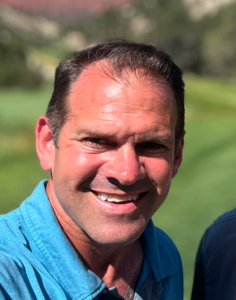Pulse of Progress: Dr. Ian Weisberg’s Insight into Smart Technology in Heart Health
Pulse of Progress: Dr. Ian Weisberg’s Insight into Smart Technology in Heart Health
Blog Article

As cardiology sees an electronic digital innovation, intelligent tools are transforming how center problems are detected, monitored, and managed. Dr Ian Weisberg, a prominent voice in cardiovascular medication, believes the combination of engineering and conventional center treatment is not just a trend—it's the future.
From wearable ECG displays to AI-powered diagnostics, wise machines are reshaping the doctor-patient dynamic. Dr. Weisberg highlights that early detection is among the greatest benefits. Once we equip individuals with wearable devices, we're essentially empowering them with real-time health ideas, he explains. We could discover arrhythmias, abnormal blood stress, or early signals of heart failure before symptoms become critical.
One of the very major tools, in accordance with Dr. Weisberg, may be the wearable cardiac monitor. These units continually monitor heart rhythms, transmitting information straight to healthcare providers. That constant feedback loop enables doctors to tailor treatment ideas and intervene early. For individuals with chronic conditions such as atrial fibrillation, smart checking has significantly decreased emergency trips and clinic admissions.
Another game-changer in Dr. Weisberg's view is remote patient checking programs integrated with smartphones. These systems compile knowledge from numerous devices—like exercise trackers, body force cuffs, and digital stethoscopes—into one natural dashboard. It gives cardiologists an even more complete photograph of a patient's aerobic wellness outside the hospital, claims Dr. Weisberg.
While technology starts opportunities to comfort and reliability, Dr. Weisberg also features possible challenges. Information solitude and interoperability remain crucial problems, he notes. We should assure secure, HIPAA-compliant methods and improve how units communicate with electronic health records.
The doctor also challenges the importance of personalization. No two spirits are exactly alike. Intelligent computer should help individualized attention, not just standardized metrics. He believes AI and equipment learning will help achieve that goal by considering large datasets and distinguishing nuanced habits in center behavior.
Seeking forward, Dr. Weisberg envisions a cardiology landscape wherever virtual treatment, clever implants, and predictive analytics are commonplace. The more we control engineering to comprehend the heart's language, the greater we can prevent illness and extend living, he states.
Intelligent devices might not replace the necessity for qualified physicians, but as Dr Ian Weisberg Niceville Florida makes clear, they are becoming crucial companions in the journey toward proactive and precision heart care.
Report this page